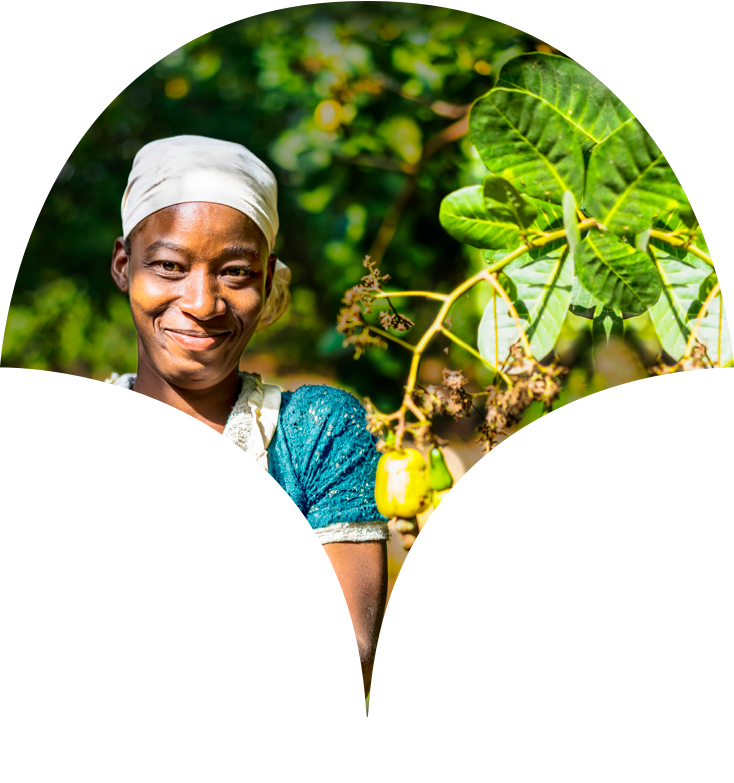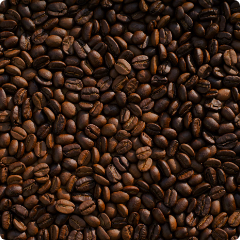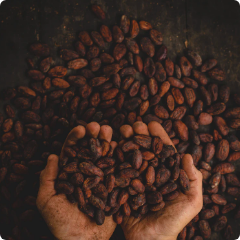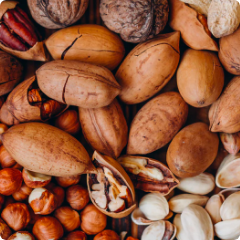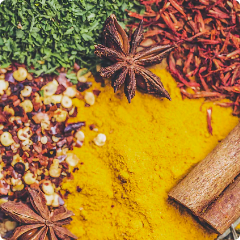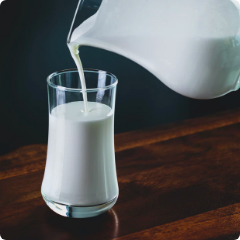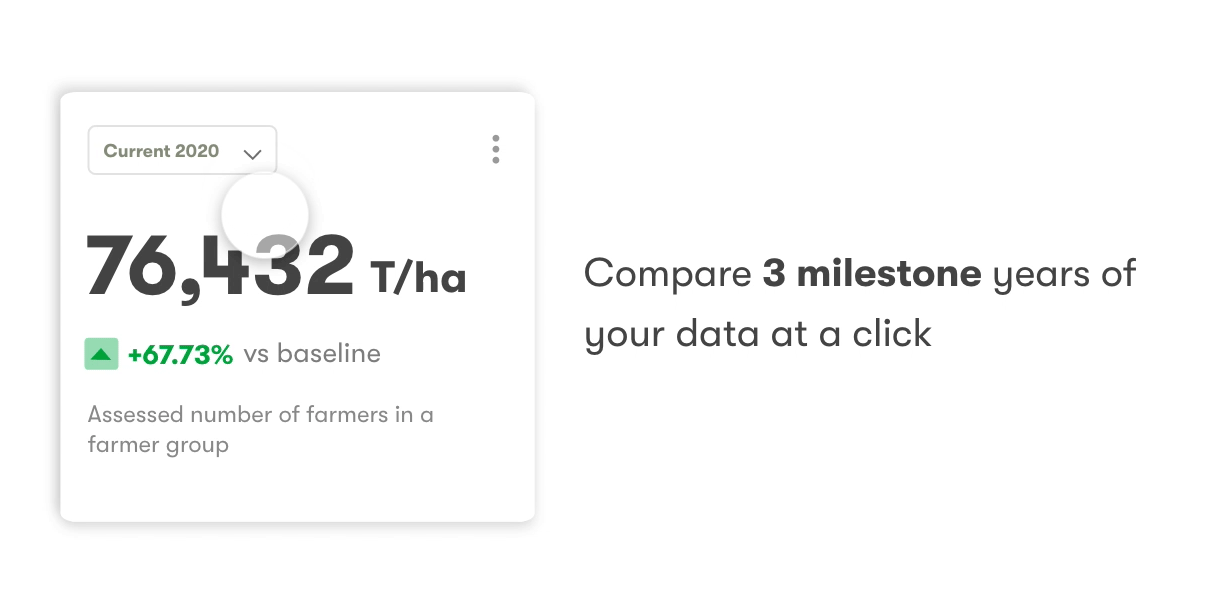
WHAT DOES THE ATSOURCE PIN ON A PRODUCT MEAN?
Showing an AtSource pin means that the ingredients of this product are sourced from a responsible supply chain. We have tracked how this product was grown, harvested and processed. And every three years, the data is verified by an independent party for compliance.
FOR SUSTAINABLE AGRICULTURAL PRODUCTS, ATSOURCE LOOKS AT THREE THEMES
FREQUENTLY ASKED QUESTIONS FROM CUSTOMERS
1.What does a 'sustainable' product mean?
It means that a product is produced in a way that has a positive impact on farmers, communities, and the planet. Our sustainability framework focuses on 10 areas aligned to the UN Sustainable Development Goals, ranging from economic opportunity and education, through to climate action.
2.What is AtSource?
Olam International has created a data platform called AtSource, to bring together information on how ingredients including cocoa, coffee and nuts are produced and transported. This information is accessible to customers via the AtSource digital dashboard, providing insight into the level of sustainability of their products.
3.What products are allowed to use the AtSource Verified logo?
Products where the primary ingredients are independently verified as meeting AtSource+ sustainability and data requirements. More details can be found here.
SUSTAINABLE COFFEE
Many coffee-growing communities live in remote, rural areas with limited infrastructure and very little access to education. At the same time, several years of low prices, together with the impact of climate change, are threatening coffee farmer livelihoods. They need help to access the resources and knowledge that will increase their productivity and profitability, and create opportunities for them, their families and communities.
The tropical regions where coffee is typically grown are also vulnerable to deforestation and mountain springs and other rural water sources in these growing regions are also impacted by wastewater from the wet-milling process that separates the coffee bean from the fruit. In 2020, our coffee business launched an ambitious roadmap to tackle these issues by improving livelihoods, communities and landscapes by 2025: Coffee LENS
SUSTAINABLE COCOA
Despite the significant progress made in recent years, the cocoa sector still faces challenges.
The smallholder farmers who grow cocoa in West Africa, South America and South East Asia usually own small plots of land, and yields are too low to earn a living income that will support farmers and their families. When farmers cannot afford to pay for labour, their children might help on the farm rather than attend school leading to child labour. And low yields some farmers resort to clearing more land to plant additional crops, causing deforestation.
That’s why in 2019, we launched Cocoa Compass, our ambition for a sustainable cocoa supply chain, one where farmers earn a living income, all children have access to education, and the natural world is protected. We’re taking action to get there, from training farmers in sustainable farming methods that are good for nature and livelihoods, to rolling out child labour monitoring and remediation systems across the supply chain. For detailed information, read Cocoa Compass.
SUSTAINABLE NUTS
There are many types of nuts and they are grown in different regions around the world, with each having their own specific sustainability challenges.
For example, cashews are grown by smallholder farmers in rural Africa and Asia who are among the poorest in the world. They cannot always grow enough to feed their families and need support to increase yields and improve livelihoods. Whereas hazelnuts are mainly grown on large, professionalised farms in Turkey which bring in seasonal workers to help with the harvest. The priority there is to make sure those workers have fair contracts and wages.
We are taking action across all our nut supply chains to tackle key sustainability issues. For detailed information, visit Sustainability in Cashew and Sustainability in Hazelnuts.
SUSTAINABLE SPICES
Spices make up a very diverse product group. Our spices range includes chilies, onion, garlic, pepper, parsley and tropical spices, like turmeric, ginger, cinnamon and cumin. Read an example of an impact story about what we do to produce onions in a sustainable way or find related information on spices here.
SUSTAINABLE DAIRY
Rich in protein and nutrients, milk and other dairy products are enjoyed by millions of people all over the world. But dairy farming can be associated with sustainability challenges like greenhouse gas emissions, as well as issues like animal welfare.
That’s why we’ve been taking action for many years, and since 2018 we have made a significant reduction in our carbon footprint per litre of milk produced. However, we know there is still more to do to scale sustainable impact for our people, animals and the planet.
Read more in Milk Matters, our first publicly stated sustainability commitments.
